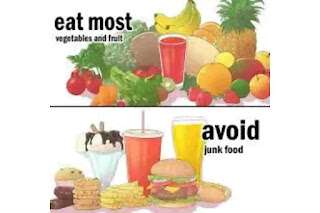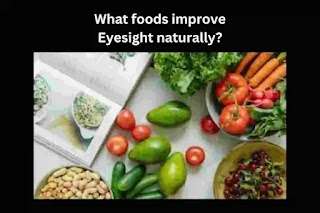Good Diet Plan While Breastfeeding
Introduction:
Becoming a mother is a life-changing experience that is characterized by love, joy, and responsibility. One of the most important aspects of mother care is nursing, which is one of the numerous responsibilities new moms have. Maintaining a healthy diet during nursing is crucial for the mother’s wellbeing as well as the health of the infant. We’ll go over the specifics of creating a meal plan that promotes optimal nourishment for mother and baby and promotes a peaceful and healthy nursing experience in this comprehensive guide.
Recognizing Nutritional Needs:
A mother’s body is subjected to special demands while breastfeeding, so a balanced diet full of vital nutrients is required. Protein, calcium, iron, omega-3 fatty acids, and a range of vitamins, including A, C, and D, are important among them. These nutrients are essential for maintaining milk production, promoting the newborn’s healthy development, and helping with postpartum recuperation.
Components of an Effective Diet Plan:
Plenty of Hydration:
Lots of Water: Both the production of milk and general health depend on getting enough water. Aiming to consume 8 to 10 glasses of water a day, nursing moms should modify their intake according to their own needs and the conditions in their environment. Including foods high in water content, like fruits and vegetables, can help maintain proper hydration levels.
Lean Protein Sources:
During nursing, both the mother and the infant need protein since it is necessary for tissue growth and repair. To guarantee that you get enough of this important nutrient, include lean protein sources like fish, chicken, tofu, lentils, and dairy products in your meals and snacks throughout the day.
Good Fats:
Good fats are essential for the development of a baby’s brain and for the absorption of vitamins that are soluble in fat. Incorporate foods high in avocados, nuts, seeds, and olive oil—sources of healthy fats—into your diet to promote the health of your nursing child as well as your own.
Complex carbs:
Complex carbs aid in digestion and encourage satiety while also providing sustained energy and vital nutrients like fiber. An important component of a breastfeeding mother’s diet should be whole grains including quinoa, brown rice, oats, and whole-wheat bread.
Ample Fruits and Vegetables:
Rich in vitamins, minerals, and antioxidants, colorful fruits and vegetables are nutritious powerhouses. When planning meals and snacks, try to incorporate a range of fruits and vegetables to maximize nutritional consumption and promote general health.
Read More Article: Heart-Healthy Diet: Best Plan for a Strong Heart
Foods High in Calcium:
Lactating women have higher calcium requirements than non-breastfeeding mothers do. Calcium is necessary for both bone health and muscle function. To achieve these needs, include foods high in calcium, such as dairy products, fortified plant-based milks, and leafy greens, such as broccoli and kale, in your diet.
Iron-Rich Foods:
Due to the increased blood volume and lactation demands, breastfeeding moms are at risk of iron deficiency. Iron is essential for the transportation of oxygen and the production of energy. To promote optimal iron levels, include foods high in iron, such as lean meats, chicken, fish, lentils, spinach, and fortified cereals.
Omega-3 Sources:
DHA and EPA in particular are essential for the development of an infant’s brain and eyes. To make sure you’re getting enough of these vital nutrients, include plant-based sources like walnuts, chia seeds, and flaxseeds in your diet along with fatty fish like trout and salmon.
Foods to Limit or Avoid:
It’s crucial to be aware of some foods and chemicals that may have an adverse effect on the health and wellbeing of the nursing child while they’re nursing. Among them are:
Caffeine:
Babies who consume too much caffeine may get agitated or experience sleep disturbances. Reduce the amount of caffeine you take, and if you do, pay attention to how your infant responds. Caffeinated beverages include tea, coffee, and energy drinks.
Alcohol:
Alcohol can harm an infant’s growth and sleep patterns and is absorbed through breast milk. If you decide to drink alcohol, limit your intake and refrain from nursing for at least two to three hours after a typical drink to let the alcohol to pass via breast milk.
Highly Processed Foods:
Sugary sweets, processed snacks, and foods heavy in bad fats have little nutritional value and can be harmful to the mother’s and the child’s health. Reduce your intake of these foods and substitute them with nutrient-dense foods that promote general health and wellbeing.
Speaking with a Healthcare Professional:
Every mother and child pair is different, and depending on things like dietary preferences, infant development, and maternal health, each may have different nutritional needs. Therefore, in order to create a food plan that suits your individual requirements and takes care of any issues you may have, it is imperative that you speak with a healthcare professional, such as a licensed dietitian or lactation consultant. A medical expert can offer you individualized advice and assistance, enabling you to face the difficulties and unknowns of nursing with assurance and comfort.
In conclusion, creating a healthy diet plan while nursing is a complex process that calls for close attention to detail, deliberate food selection, and continuous medical assistance. Breastfeeding moms can maximize their own health and well-being while giving their developing babies the greatest nutrition possible by emphasizing nutrient-dense foods, drinking plenty of water, and getting help when necessary. For both mother and child, nursing may be a gratifying and fulfilling experience with commitment, education, and support.
You can Read more About Good Diet Plan While Breastfeeding Here.




